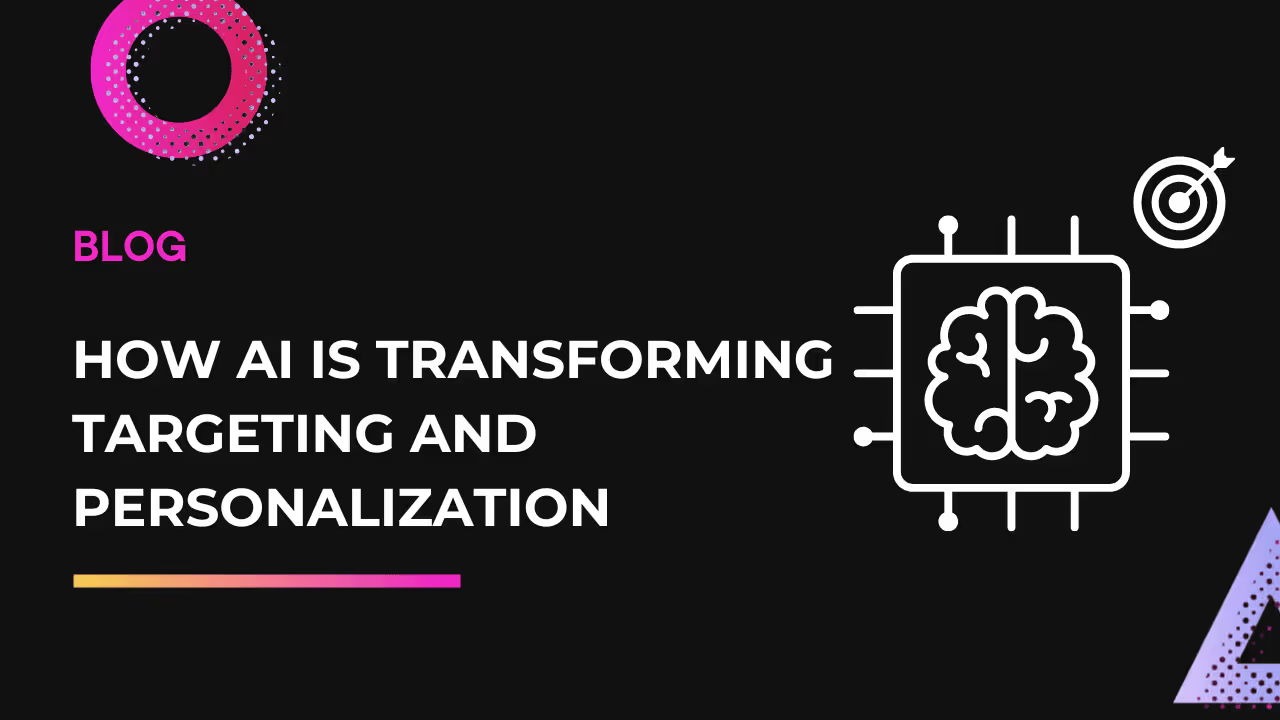Digital advertising is a rapidly evolving field, and artificial intelligence (AI) is playing an increasingly important role. AI in marketing is being used to improve targeting, personalization, and measurement of digital advertising campaigns.
In this article, we will explore how AI is transforming targeting in digital advertising. We will also discuss the future of digital advertising and how AI will continue to play a role.
How AI in Marketing is Transforming Targeting
Traditionally, digital advertising targeting has been based on demographics, interests, and behavior. However, AI is now being used to create more sophisticated targeting models that take into account a wider range of factors, such as intent, context, and even emotions.
For example, AI in marketing can be used to predict which users are most likely to be interested in a particular product or service. This information can then be used to target ads more effectively.
In addition to predicting intent, AI can also be used to understand the context in which users are viewing ads. This information can be used to show ads that are more relevant to the user's current situation.
Finally, AI can also be used to understand the emotions of users. This information can be used to show ads that are more likely to resonate with the user's emotional state.
Think of a user that is feeling sad, AI in marketing can be used to show them ads for products or services that are designed to make them feel better.
AI is transforming the way that ads are targeted, and this is leading to better results for advertisers. By understanding the intent, context, and emotions of users, AI in marketing can be used to show ads that are more relevant and more likely to be clicked on.
As AI continues to evolve, we can expect to see even more sophisticated targeting models. This will lead to even better results for advertisers, and it will also create a more engaging and personalized experience for users.

How AI is Transforming Personalization
In addition to targeting, AI in marketing is also transforming personalization in digital advertising. By personalization, we define the process of tailoring ads to the individual needs and interests of each user.
Traditionally, personalization has been based on demographics and interests. However, AI in marketing is now being used to create more sophisticated personalization models that take into account a wider range of factors, such as intent, context, and even emotions, enabling platforms like, for example, Google Ads to deliver highly targeted and effective campaigns.
For instance, AI in marketing can be used to predict which products or services a user is most likely to be interested in. This information can then be used to personalize the content of ads that are shown to the user.
AI in marketing can also be used to understand the context in which users are viewing ads. This information can be used to personalize the ad experience even further. For example, if a user is viewing a product page on a website, AI can be used to show them ads for related products that are also available on the website.
Finally, AI in marketing can also be used to understand the emotions of users. This information can be used to personalize the ad experience in a way that is more likely to resonate with the user's emotional state. For instance, if a user is feeling happy, AI in marketing can be used to show them ads for products or services that are designed to make them feel even happier.
AI is transforming the way that ads are personalized, and this is leading to better results for advertisers. By understanding the intent, context, and emotions of users, AI in marketing can be used to show ads that are more relevant and more likely to be clicked on.
More complex personalization models are expected to emerge as AI continues to develop. This will result in even better results for advertisers and a more engaging and personalized experience for users.
Here are some examples of how AI in marketing is being used to personalize digital advertising:
- Predicting intent: AI can be used to predict which products or services a user is most likely to be interested in. This information can then be used to personalize the content of ads that are shown to the user. For example, if a user has recently searched for information about a new car, AI can be used to show them ads for car dealerships in their area.
- Understanding context: AI in marketing can be used to understand the context in which users are viewing ads. This information can be used to personalize the ad experience even further. For example, if a user is viewing a product page on a website, AI can be used to show them ads for related products that are also available on the website.
- Understanding emotions: AI in marketing can be used to understand the emotions of users. This information can be used to personalize the ad experience in a way that is more likely to resonate with the user's emotional state. For example, if a user is feeling sad, AI can be used to show them ads for products or services that are designed to make them feel better.
The Future of Digital Advertising
The future of digital advertising is bright. AI is transforming the way that ads are targeted and personalized, and this is leading to better results for advertisers.
AI is constantly evolving, and with this evolution comes even more sophisticated targeting and personalization models. These models benefit both advertisers and users, as they can lead to better results for advertisers and a more engaging and personalized experience for users.
Let's take a look at some of the upcoming trends that will shape the future of digital advertising:
- More personalized ads: AI in marketing will be used to create more personalized ads that are tailored to the individual needs and interests of each user. This will lead to a more engaging and relevant ad experience for users.
- More contextual ads: AI will be used to understand the context in which users are viewing ads. This information can be used to show ads that are more relevant to the user's current situation.
- More emotional ads: AI in marketing will be used to understand the emotions of users. This information can be used to show ads that are more likely to resonate with the user's emotional state.
The Ethical Implications of AI in Digital Advertising
The use of AI in digital advertising has a number of ethical implications. Some of these implications include:
- Privacy: AI-powered ad targeting systems collect a vast amount of data about users, including their browsing history, search history, and social media activity. This data can be used to create highly personalized ads, but it can also be used to track users across the web and build profiles of their interests and habits. This raises concerns about privacy and the potential for misuse of personal data.
- Bias: AI-powered ad targeting systems are trained on data that is collected from users. If this data is biased, the AI system will be biased as well. This can lead to ads that are targeted to certain groups of people in a discriminatory way. For example, an AI system that is trained on data from a predominantly white population may be more likely to show ads for luxury goods to white people than to people of color.
- Manipulation: AI-powered ad targeting systems can be used to manipulate users into clicking on ads or buying products. For example, an AI system could be used to show ads that are designed to trigger emotions such as fear or anxiety. This could lead users to make decisions that they would not otherwise make.
It is important to be aware of the ethical implications of AI in digital advertising. Consumers should be aware of the data that is being collected about them and how it is being used. They should also be aware of the potential for bias and manipulation in AI-powered ad targeting systems.
Furthermore, various measures can be taken to tackle the ethical concerns associated with AI in digital advertising. Firstly, transparency is crucial. Advertisers should openly communicate their employment of AI for ad targeting, including the disclosure of collected data and its utilization. Secondly, accountability is paramount. Advertisers must be held responsible for the ethical use of AI in their campaigns, ensuring the absence of bias or manipulation in their systems. Lastly, regulation by governments is necessary. Implementing laws that mandate transparency regarding data collection and use practices can help regulate the use of AI in digital advertising.
The use of AI in digital advertising is a rapidly evolving field. It is important to be aware of the ethical implications of this technology and to take steps to address them.

Conclusion
In conclusion, AI is transforming the way that digital advertising is targeted and personalized. This is leading to better results for advertisers and users alike. As artificial intelligence continues to advance, we can anticipate the emergence of increasingly refined targeting and personalization models. These developments are expected to lead to improved outcomes for both advertisers and users. Advertisers will benefit from more precise targeting capabilities, while users will enjoy more tailored and personalized experiences as AI technology progresses.
Utilizing AI in digital advertising offers several advantages:
- More relevant ads: AI can be used to show ads that are more relevant to the user's interests and needs. This leads to a more engaging and relevant ad experience for users.
- Better results: AI can help advertisers to get better results from their campaigns. This is because AI can help to target ads to the right people and personalize them in a way that is more likely to resonate with the user.
- Increased trust: As AI becomes more transparent, users are more likely to trust advertisers who use it. This can lead to increased click-through rates and conversions.
Overall, AI is a powerful tool that can be used to improve the effectiveness of digital advertising. As AI continues to evolve, we can expect to see even more benefits from its use in this area.
With Dataslayer Morpheus, your marketing AI toolkit is always within reach. Start your free trial today and discover how AI can transform your marketing data into actionable insights for smarter decision-making.







